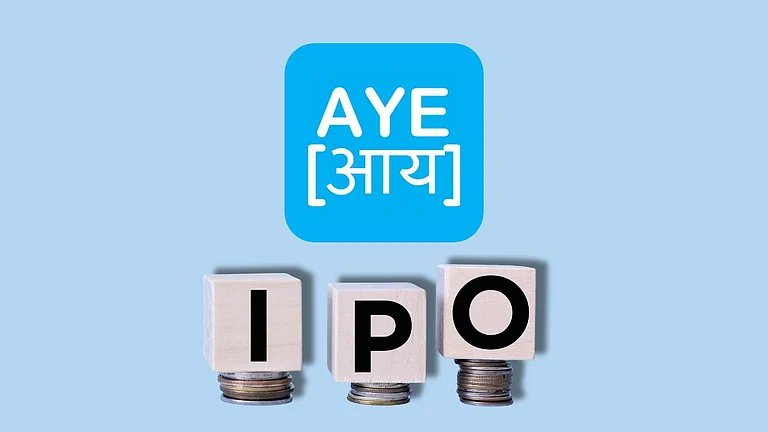In a world characterised by economic uncertainty, achieving financial independence has become an increasingly important goal. Financial independence empowers individuals to live life on their own terms, pursue their passions, and weather unexpected storms with confidence.
People who are financially independent can retire early because of their smart planning. When you achieve financial freedom, you can live the retirement lifestyle the way you want without worrying about money. Those who succeed in this approach make their money work for them instead of working for money. Now that you understand financial independence, let’s explore how you can achieve it.
ADVANTAGES OF ACHIEVING FINANCIAL INDEPENDENCE
Let us explore the perks that come with attaining this financial freedom.
Security For Unforeseen Circumstances: Financial independence prepares you for unexpected emergencies down the road. You won’t need to rely on external assistance during unfortunate events, as your emergency funds can help you navigate such situations safely.
Cultivate Discipline: By accumulating savings and investments, you naturally develop a sense of discipline. You become more conscious of unnecessary expenditures, which in turn helps you appreciate the value of your possessions.
Embrace Your Preferred Lifestyle: With financial independence, you gain the freedom to live life on your own terms. Whether you choose to retire fully or take breaks to explore other aspects of life, you can savour the joys of living on your own terms.
FIVE WAYS TO BECOME FINANCIALLY INDEPENDENT
Here are five ways to become financially independent.
Try And Save Half of Your Earnings: This might come across as a radical notion that seems implausible in practical terms. Nonetheless, there are individuals who have embraced the concept of setting aside 50 per cent of their post-tax income. These individuals channel these savings into establishing emergency funds, repaying debts, and planning for an early retirement. This ultra-saving strategy not only enables them to clear their debts well ahead of retirement age, but also helps them evade unnecessary interest payments.
To concretely apply this principle, you can consider either of the following methods:
A] Opt For A Lower Living Standard: This approach particularly suits households with multiple earners. Whether you are a couple, roommates, or partners, you can adopt this tactic to optimise your saved funds. You can initiate the process by structuring your financial management in a way that your expenditures mirror the income of the lower-earning member. Initially, you could choose to maintain your lifestyle based on higher income and gradually transition to align with the budget of the lower earner.
B] Maximise Your Earnings: The title captures the essence. Your focus should be on identifying avenues to boost your income, or, alternatively reduce your day-to-day expenses. However, it’s important to note that living expenses can only be curtailed to a certain extent, given that utilities, groceries, and transportation expenses are indispensable.
C] Master Budgeting For Financial Freedom: Budgeting is an ideal companion to the practice of saving. It amplifies your savings potential by revealing opportunities where you can cut costs.
Says AK Narayan, CEO, AK Narayan Associates, a financial planning firm: “Skilful budgeting empowers you to enhance your savings while continuing to relish the activities you love. Embracing the 50-30-20 budgeting rule can serve as your compass for maintaining a solid financial footing.”
D] Earning Passive Income: Passive income entails earnings that flow in effortlessly, requiring minimal upkeep. It stands as a highly progressive avenue for achieving financial independence. This income stream materialises through diverse channels, such as property rentals, stock market investments, and business partnerships. As these avenues don’t demand exhaustive involvement, you can continue to focus on active income pursuits while simultaneously benefitting from both sources.
Here are five types of passive income that can help you achieve financial independence:
1] Rental Income: Owning and renting out properties can provide a steady stream of passive income through monthly rent payments from tenants.
2] Dividend Stocks: Investing in dividend-paying stocks will allow you to earn a portion of a company’s profits regularly, providing a reliable source of passive income.
3] Create Digital Products: Developing and selling online courses, e-books, or other digital products can lead to passive income as people purchase and use your creations over time.
4] Freelancing: You can take up work as a freelancer, offering your skills on your own schedule. Working for multiple clients can earn you more than a regular job. As you gain experience, you can also charge higher prices for your services.
5] Blogging: You can take to blogging to attract visitors to your website. You can connect it to ads, feature affiliate products, or sell your own items. This will create an ongoing income, even from your older blog posts.
E] Investments: Investments such as fixed deposits (FDs), recurring deposits (RDs), mutual funds, systematic investment plans (SIPs), and Unit-linked insurance products (Ulips) play a significant role in achieving financial independence.
F] FDs and RDs: These are low-risk investment options offered by banks. Fixed deposits (FDs) involve depositing a lump sum for a fixed tenure, while recurring deposits (RDs) involve regular contributions over time. Both provide stable returns and act as a secure foundation for building wealth.
G] Mutual Funds And SIPs: Mutual funds pool money from various investors to invest in a diversified portfolio of stocks, bonds, or other assets. Systematic investment plans (SIPs) allow you to invest a fixed amount regularly, building discipline and capital over time. Mutual funds and SIPs offer potential for higher returns compared to traditional savings, aiding wealth accumulation.
H] Ulips: Unit-linked insurance plans (Ulips) combine investment and insurance. A portion of the premium goes towards life coverage, and the remainder is invested in various funds. Ulips provide the opportunity to participate in market growth while offering insurance benefits, contributing to both financial security and growth.
CONTINUOUSLY EDUCATE YOURSELF
Financial literacy is crucial on your journey to financial independence. Stay updated on subjects related to personal finance, trends in the economy, and various investment tactics. Books, online resources, seminars, and workshops can provide valuable insights to help you make informed financial decisions.
Becoming financially independent is an achievable goal for anyone willing to put in the effort, discipline, and dedication. By setting clear goals, managing your finances wisely, investing strategically, and staying committed to your plan, you can pave the way to a future filled with financial security, freedom, and peace of mind. Start your journey today and watch as your efforts transform your financial landscape.














